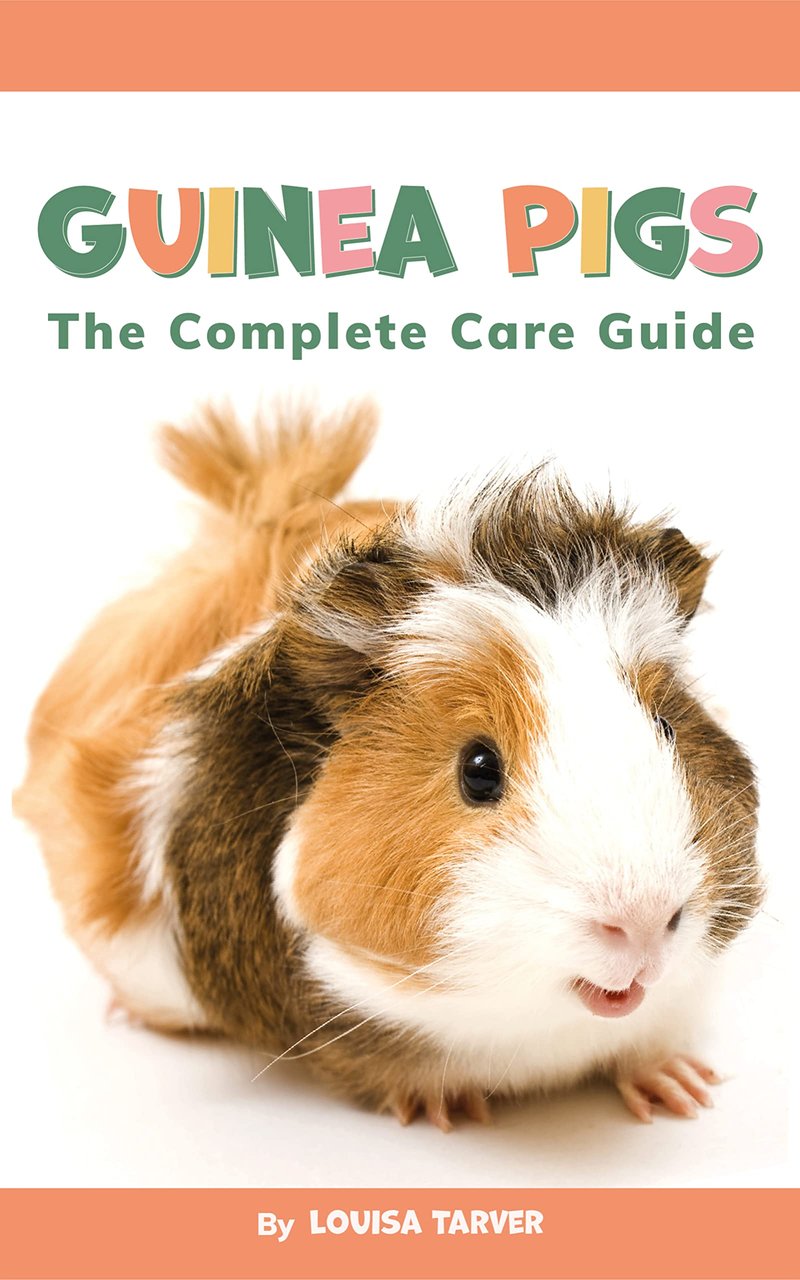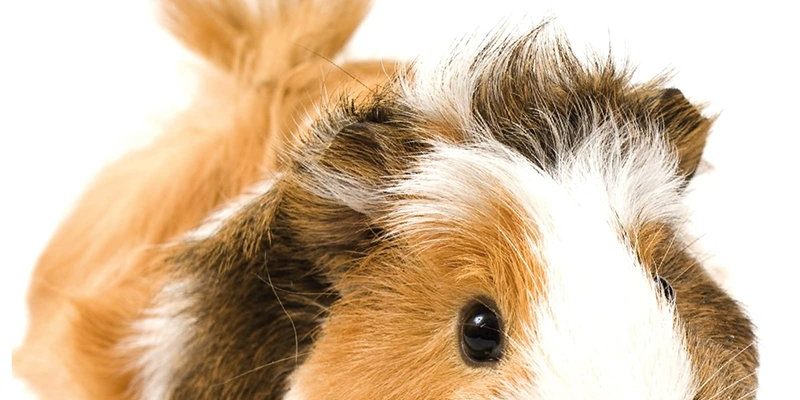
Let’s dig into how you can offer your Abyssinian guinea pig the best life possible. Think of this as your essential guide for keeping your new friend happy and healthy. We’ll cover their dietary requirements, the ideal setup for their cage, and their social needs. By the end, you’ll feel confident in your ability to provide a loving home for your little furry buddy.
Understanding the Abyssinian Guinea Pig
Abyssinian guinea pigs are a breed that stands out due to their unique coat. Their fur grows in swirls that resemble rosettes, which makes them incredibly charming. But it’s not just about looks; these pigs are lively and curious. Understanding their personality can really help you connect with them. They’re not just pets; they’re social animals that thrive on interaction.
One of the most important things to know is that Abyssinians are naturally curious and quite playful. They love exploring their surroundings and get a kick out of simple toys and tunnels. You might find them squeaking excitedly when it’s playtime! This is a sign of their affectionate nature and that they enjoy being around you. The more you engage with them, the better they’ll adapt to their new home.
Creating the Perfect Cage Setup
A well-set-up cage is essential for your Abyssinian’s happiness. It’s their safe space, much like your cozy living room. The cage needs to be spacious enough for them to move around freely. A good rule of thumb is to aim for a cage that’s at least 7.5 square feet for one guinea pig. The more space, the better! If you have two, consider expanding to 10.5 square feet.
When setting up their home, think about their comfort. You’ll want to use a solid bottom cage that has plenty of ventilation but keeps them safe from drafts. Add a layer of soft bedding, like aspen shavings or paper-based products, to keep their feet comfortable and to soak up any mess. Avoid cedar or pine shavings, as these can be harmful to their health.
Essential Cage Accessories
Now that you have the basics covered, let’s talk about accessories. Here’s what you should include in their cage:
- Hideouts: Guinea pigs love to have places to retreat and feel secure. Small tunnels or hidey houses are great options.
- Water bottle: A sturdy, spill-proof water bottle is ideal. Make sure it’s easy to access and keep it clean.
- Feeding area: Use a heavy ceramic bowl for their food. This prevents them from tipping it over.
- Toys: Chew toys, tunnels, and even cardboard boxes can keep them entertained.
Make sure to clean the cage regularly to keep it fresh. A clean space will help prevent bacteria and keep your guinea pig feeling happy and healthy.
Nailing Their Diet
Feeding your Abyssinian guinea pig the right diet is crucial. Think of nutrition as the fuel that keeps their little engines running. The backbone of their diet should be fresh, high-quality hay. Timothy hay is an excellent option, providing the fiber necessary for their digestion. Aim to have hay available at all times—it’s like their all-you-can-eat buffet!
In addition to hay, you should offer a small amount of high-quality guinea pig pellets each day. Look for pellets that are specifically formulated for guinea pigs, as they contain essential vitamins, including Vitamin C, which they can’t produce on their own. It’s a bit like giving them a daily vitamin.
Fresh Veggies and Treats
Alongside hay and pellets, fresh vegetables are a key part of their diet. Leafy greens like romaine lettuce, cilantro, and bell peppers are fantastic options. Just remember to introduce new foods gradually to avoid upsetting their tummy. It’s like trying out a new dish—some will love it, and some might need a little time!
As for treats, be cautious. While it’s tempting to spoil them, stick to small amounts of fruits like apples or strawberries. They’ll love the taste, but moderation is key! Over-treating can lead to health issues.
Social Needs: Keeping Their Spirits High
Your Abyssinian guinea pig will thrive on social interaction. These little guys are not solitary creatures; they are social animals that enjoy companionship, either from humans or other guinea pigs. Think of them as the extroverts of the pet world.
If possible, consider adopting a pair of guinea pigs. They’ll benefit from having a buddy to play with, groom, and snuggle. If you do go this route, make sure to introduce them in a neutral space to avoid any territorial disputes. It’s like introducing two new friends at a party—give them time to get to know each other!
Daily Interaction and Playtime
No matter if you have one or two, daily interaction is essential. Spend time talking to them, petting them, and letting them out for some playtime. They’ll love exploring a safe, guinea-pig-proofed area. Creating bonding moments will not only enhance your relationship but also keep them mentally stimulated.
You might find that they’ll start to recognize your voice and even come when called. It’s a heartwarming experience, knowing they feel comfortable in your presence.
Grooming Your Abyssinian
Abyssinian guinea pigs have a unique coat that requires a bit of attention. Their fur can get tangled and matted if not groomed regularly, making grooming an essential part of your routine. Think of it as a spa day for your pet!
Start by brushing your guinea pig once a week using a soft-bristled brush. This will help remove loose hair and prevent tangles. If you notice any mats, gently work through them with your fingers or the brush. Regular grooming not only keeps them looking great but also fosters a sense of trust between you two.
Additionally, check their nails regularly. If they’re getting long, it’s time for a trim. A good set of nail clippers designed for small animals can make this task easier. Just be careful not to clip too close to the quick, as it can hurt them. If you’re unsure, you can always consult a vet for help.
Health Care Essentials
Lastly, keeping an eye on your Abyssinian’s health is crucial. Regular vet visits are important for preventative care and to catch any issues early. Look for a vet that specializes in small animals to ensure your guinea pig gets the best care.
You should also keep an eye out for signs of illness, like changes in eating habits, lethargy, or unusual behaviors. If you notice anything off, don’t hesitate to reach out to a vet. Remember, it’s always better to be safe than sorry!
Caring for an Abyssinian guinea pig is a rewarding experience, filled with fun and companionship. By focusing on their diet, creating a cozy cage setup, and ensuring they meet their social needs, you can build a strong bond with your furry friend. With a little love and attention, your Abyssinian will thrive, bringing joy and laughter into your home.
Think of yourself as their partner in happiness—you’re not just a pet owner; you’re a part of their world! So, gear up for cuddles, playtime, and plenty of happy squeaks. Your Abyssinian guinea pig is sure to fill your life with warmth and magic.

